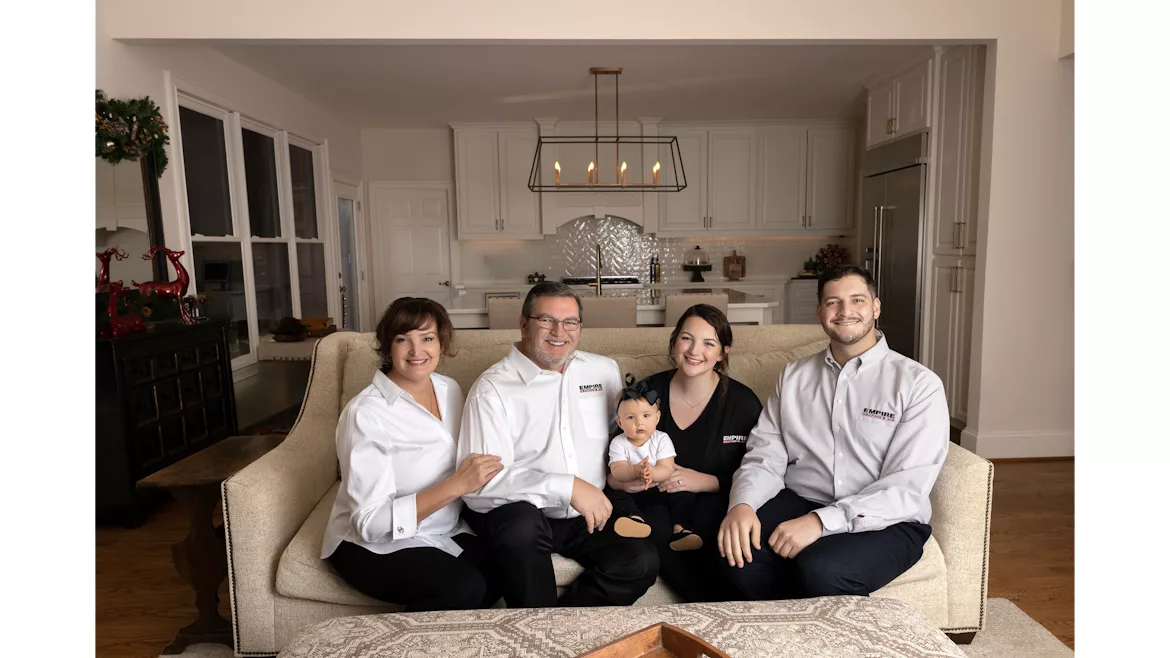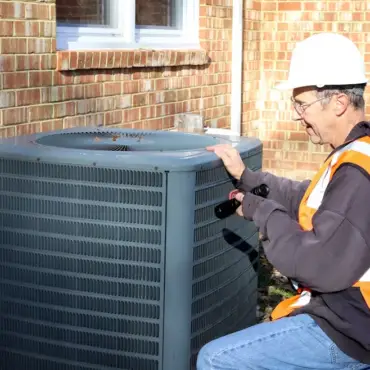Across the HVACR industry, a quiet generational shift is reshaping long-standing family businesses. Younger owners and managers are stepping into leadership roles — often after growing up in the shop or working summers in the field — and they’re bringing fresh ideas to operations, technology, and culture. Their challenge isn’t starting from scratch; it’s modernizing what already works while honoring the legacy built by previous generations.
For many next-generation leaders, modernization starts with technology — but it doesn’t end there. It’s about rethinking how the business runs, communicates, and supports its people. From upgrading software systems to leveraging AI and refreshing marketing strategies, these owners aren’t reinventing the wheel; they’re making it run more efficiently.
“We’ve always looked for ways to use technology to streamline operations, and because it has been such an integral part of our business for so long, our employees see it as a real benefit,” said Dayna Hottle, general manager at C&C Heating & Air Conditioning in Roseville, Michigan, and a representative of her family’s third generation in the business.
Since stepping into a leadership role, Hottle has prioritized both people and progress. She helped guide C&C’s adoption of ServiceTitan and introduced AI tools to improve dispatching and manage call overflow, streamlining operations for both employees and customers. Growing up during a period of rapid technological change, Hottle naturally shaped C&C into what she calls a “tech-geek” company.
Modernization at C&C has extended beyond operations. The company refreshed its logo and truck wraps, expanded its online presence, and grew its Google reviews to more than 6,500. But for Hottle, the most meaningful change has been emphasizing work-life balance.
“As we became parents and grew as leaders, it became clear how important that was, not only for employee satisfaction but also for building trust and keeping great people on our team,” Hottle said.
Over at Empire Heating & Air Conditioning in Atlanta, Georgia, Mason Hoover is CFO. He’s following in the footsteps of his father, who, alongside his mother, opened the outfit in 1985. Even though Hoover has been involved in the family business his whole life — working in both the field and office — it wasn’t always assumed he’d be taking any sort of leadership reins. After graduating from college, Hoover actually left the business to try his hand at the corporate world. It was not for him. So, he came back. But this time, Hoover had an accounting degree. Eventually, he was tapped for CFO.
Looking for quick answers on air conditioning, heating and refrigeration topics?
Try Ask ACHR NEWS, our new smart AI search tool.
Ask ACHR NEWS
“I have a wonderful relationship with my father,” Hoover said. “He just kind of nodded at me, and I nodded back, and it was a ‘we knew what it meant’ type of situation.”
Since that nod, Hoover led Empire to change its pricing system across the board, streamlined the accounts payable and accounts receivable processes, implemented AI for processes and procedures, and increased community involvement.
“One of the biggest changes after coming into the management side of the business was our pricing system, across the board,” said Hoover. “Just before COVID hit, during the COVID shortages, then shortly after, followed the A2L transition and shortages; it has been a constant back-and-forth to ensure our pricing is competitive and consistent for our customers.”
While the rapid growth of technology has transformed nearly every aspect of business, and while AI does seem to be the future, Hoover said using AI for answering incoming calls isn’t something they’ll be embracing anytime soon. They do, however, use the technology for data and financial analysis, processes, procedures, research, marketing, and new business opportunities — verifying the results themselves to ensure accuracy.
As younger leaders modernize systems to boost efficiency, many are discovering that the real power of technology lies in how it enhances the human side of the business.
“People are expecting faster interaction, and frankly, technology is really almost the only way to do that,” said Claire Ferrara, president and a third-generation leader at Standard Heating & Air Conditioning in Minneapolis, Minnesota. “But for us, it’s really about how we become more efficient in repetitive tasks and initial responsiveness, so that we can actually put more human into the interactions with the customers, and even for our employees.”
For today’s emerging HVACR leaders, modernization isn’t just about adopting the latest tech — it’s about leading differently.
“We became a lot more collaborative in our leadership, sourcing ideas from not only management, but also frontline — sometimes even customers,” Ferrara said. “I personally just realized that there was a lot I didn’t know, and if I was going to get us to go where I eventually thought we could, I was going to need people to come with me, and part of that was going to need to be hearing them.”
Honoring Company Legacy With Change
Modernizing a multigenerational business requires more than new tools or systems — it means finding the balance between innovation and tradition. And progress starts with respect for the company’s foundation and the people who helped build it.
“Balancing the legacy of the business with introducing new ideas is definitely a fine line,” Hottle said. “We’ve worked hard to honor what’s been built while also putting our own stamp on the future. A big part of that has been leaning on our staff to help guide the process.”
For example, when C&C updated its mission and core values, the team was actively involved in shaping them. That way, they truly reflect the entire organization — not just ownership.
At Standard, Ferrara said finding that balance starts with transparency — being clear about what will remain constant before deciding what can evolve.
“I got very clear on what’s not changing, and then it opens up the conversation for what else can change,” Ferrara said. “It was things like guiding principles, core values, certain ways we may serve a customer — those were not going to change — but then everything else was open. And that’s what we sourced information on from customers, employees, my own ideas, and that’s the balance you kind of have to strike.”
That same respect for legacy guides Hoover’s leadership at Empire.
“The most essential thing when trying to add your own perspectives to the company is to embody its existing legacy to the fullest,” Hoover said.
For example, Hoover said, Empire was built on always doing what’s right, providing the best service possible, and not being high-pressure sales techs, but rather, actual skilled, knowledgeable field experts.
“By keeping this in mind when making decisions, it helps to guide me down the path that will be the most natural transition for the company, and helps transitioning become fairly seamless,” Hoover said. “This can easily be implemented by any ‘newer generation leadership’ with the proper planning.”
Challenges and Advice
Even with family support, stepping into a leadership role within an established business comes with its own set of hurdles. Earning trust, proving credibility, and guiding change — all while honoring long-standing traditions — can be a delicate balance.
“For me, it was just a lot of humility,” Ferrara said. “It was a lot of asking questions, and it was an acknowledgement that I know I’m the family and I know I’m the new guy, but can you just give me a chance? Then it was putting my head down, asking questions, and frankly, I had to really watch my own work and make sure that I had the process, that I did the very best I could, and I turned out a good working product, and that’s what kind of helped people come on.”
Of course, introducing a new system or structure can unsettle even the most loyal teams. Communicating the ‘why’ behind each change has become one of the most valuable leadership tools for the next generation.
“People get really comfortable with how things have been,” Ferrara said. “And I think it’s not so much an unwillingness to try a new thing, it’s more that they just don’t really know if it means they’re going to lose something, or really what’s in it for them. So, it’s more time explaining why it’s beneficial or how it’s going to work upfront, before initiating a change.”
As younger leaders take the reins, they’re proving that modernization doesn’t have to mean abandoning the past. Whether through technology, collaboration, or culture, they’re blending innovation with legacy — ensuring that the family businesses built by previous generations remain not just successful, but sustainable for the next.
ADVICE FROM THOSE WHO’VE DONE IT
DAYNA HOTTLE: Honor the legacy that’s already been built and lean on your team to help show you where you can put your own stamp on things. Be patient and prioritize those changes. Not everything has to be done overnight.
MASON HOOVER: While the industry has been evolving at an astounding rate, and a more “modern” mindset fits many new niches in the business, be sure to temper your actions with wisdom. Consider joining an ACCA Mix Group to share thoughts and ideas with like-minded individuals/owners. If you can’t find an existing group that fits what you are looking for, consider starting a new one just for future owners.
Also, get involved with your local and national associations! Go to the meetings, make connections, learn new information, stay up to date on updated litigation, and arm yourself to be capable of a proactive approach towards upcoming changes rather than reacting in real time, and trying to do so on the fly. You will almost always get out more than you put in, so don’t be shy about showing out.
Don’t walk into an existing business and think you are going to change everything overnight. Established businesses have a way of doing things, and you should consider what change is worth fighting for vs what doesn’t really matter in the long run. Focus on changes that will move the needle for revenue and profits, as that will earn you the most value and build more trust from the other decision makers over time.
CLAIRE FERRARA: Three things I would say: First, do not wait until you feel perfectly prepared. You’re never gonna be, and nobody who’s already been doing it is even still prepared for every day. Second, do not think you have to know everything. Surround yourself with people who complement you, know your strengths, and if there’s something you’re weak at, hire for it. You will get where you need to go faster with that group than you would have alone. The third would be: Get a coach, get a mentor, get a therapist — someone who can give you the mirror and help you look at yourself, because you’re going to need that if you really want to lead a group of people.
Whether you require installation, repair, or maintenance, our technicians will assist you with top-quality service at any time of the day or night. Take comfort in knowing your indoor air quality is the best it can be with MOE heating & cooling services Ontario's solution for heating, air conditioning, and ventilation that’s cooler than the rest.
Contact us to schedule a visit. Our qualified team of technicians, are always ready to help you and guide you for heating and cooling issues. Weather you want to replace an old furnace or install a brand new air conditioner, we are here to help you. Our main office is at Kitchener but we can service most of Ontario's cities
Source link



